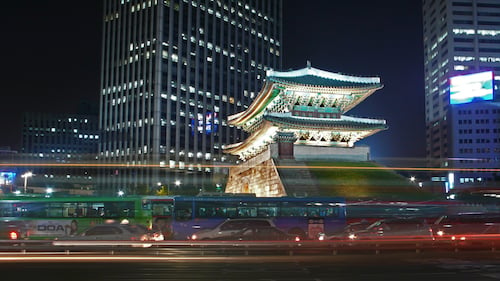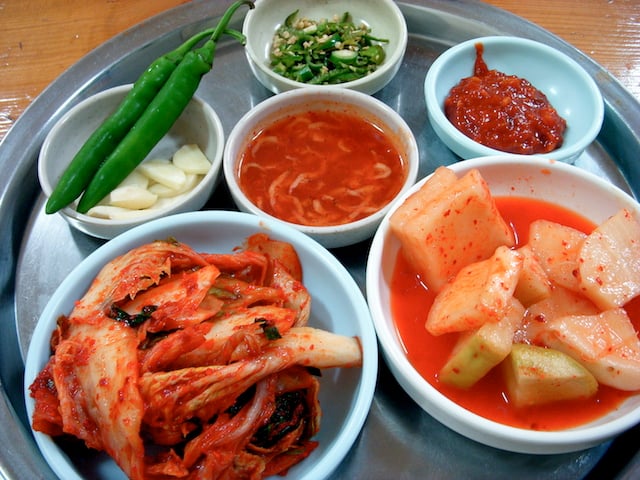Top Dialects of the Korean Language
South Korea is a small country. At 100,000 square kilometers (around 39,000 square miles), it’s about the size of the state of Indiana. Because of this, you might expect that the Korean language would be fairly consistent throughout the country. However, this turns out not to be the case. Korean features several markedly different regional dialects, each with its own unique flavor. Here are some of the most prominent dialects throughout South Korea.
Table of Contents
 Image via LWY / flickr
Image via LWY / flickr
Explore our Korean courses with qualified native speakers in your city or online!
1. Seoul/Standard Korean
Korean is governed by the National Institute of the Korean Language, an administration that is based in Seoul, the country’s capital and most populous city. As such, the dialect that is spoken in Seoul is considered to be the standard version of Korean, and is the dialect that is most “widely used by the well-educated.” If you’re learning Korean, it’s a near certainty that you’re studying this dialect.
Due to South Korea’s interconnectivity via mass media and universal education, almost all Koreans are capable of using this standard dialect when the circumstances require it. Despite the physical and political rift between South and North Korea, the Seoul dialect is also the basis for the version of the language that is spoken in North Korea.
2. Gyeongsang
The Gyeongsang dialects are spoken in the North and South Gyeongsang provinces of Korea, which are home to approximately 10 million people. Busan and Daegu, two metropolitan hubs in the Gyeongsang provinces, use variations of the Gyeongsang dialects.
Though the Gyeongsang dialect differs from Standard Korean in several ways, the most notable is its use of tones. Indeed, speakers of the Gyeongsang dialect use different tones or pitches to distinguish between homophones (words that sound the same). Standard Korean is not tonal in this way, and instead – like English – relies on context to differentiate between homophones.
3. Chungcheong
Spoken in the Chungcheong Province of South Korea, this dialect is native to a couple of million people, including inhabitants of the city of Daejeon. Due to its close geographical proximity to Seoul, the Chungcheong dialects are more similar to Standard Korean than the others on this list.
In fact, the most notable difference between the Chungcheong dialect and Standard Korean is in the rate of speech: the Chungcheong dialect is spoken notoriously slowly – and is often the subject of jokes and lore. For instance, there is a legend that once a father and a son in the Chungcheong Province were walking up a mountain, and the son saw a boulder rolling down. He tried to warn his father, but given that he spoke so slowly, he was not able to finish in time, and his father was run down by the boulder!
4. Jeolla
 Image via tylerdurden1 / Wikipedia
Image via tylerdurden1 / Wikipedia
The Jeolla Province is situated in the southwestern tip of South Korea. It’s more sparsely populated than the Gyeongsang and Chungcheong provinces but includes some important cities, such as Gwangju, which has a population of over 1.5 million.
Like the Chungcheong dialect, the Jeolla dialect is notably slower than Standard Korean. Perhaps its most distinctive feature of speakers of the Jeolla dialect is the tendency to end their sentences with the filler word 잉 (“ing”). This has no precise definition, but can be compared to how Canadians often finish their sentences with “eh.”
5. Jeju
The Jeju Province is an island separated from the mainland. As such, the province is both geographically and linguistically isolated from the rest of South Korea. In fact, the Jeju dialect is so grammatically distinct from Standard Korean that some scholars classify it as an entirely separate language.
Due to the isolation of the Jeju Province, the Jeju language has preserved several ancient words that are no longer in use in Standard Korean. For instance, 생이 (“saeng-i”, bird), 대비 (“dae-bi”, sock), and 정지 (“jeong-ji”, kitchen) are used in the Jeju dialect but have been long lost in Standard Korean.
From a linguist’s perspective, South Korea is interesting for several reasons.
- the Korean alphabet is uniquely mathematical and logical,
- its separation from North Korea has led to interesting linguistic deviations,
- and Korean is a language isolate, meaning that it has no discernible links to any other current language.
- Its diverse and interesting dialects, too, only add to Korean’s status as an interesting language worthy of study.
Aside from its linguistic merit, there are plenty of reasons to learn Korean. And the best way to do so is to take classes from a qualified, native-speaking Korean teacher. If you’re thinking about Korean courses – no matter which dialect you’re interested in – send us a quick inquiry to find out how we can help you learn Korean.
Explore our Korean courses with qualified native speakers in your city or online!


